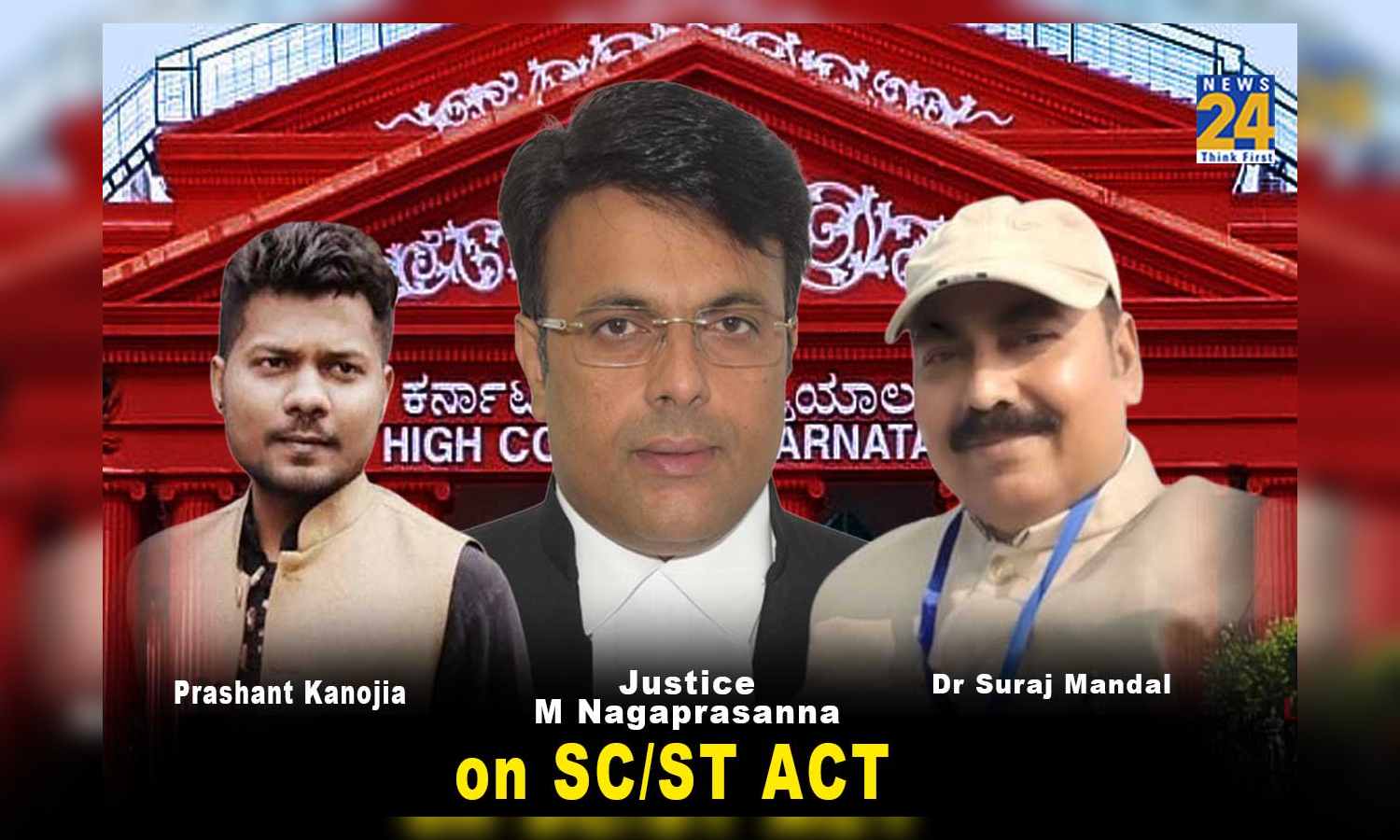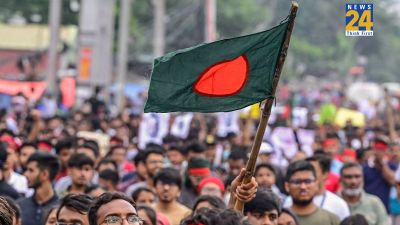New Delhi: A recent verdict by the Karnataka High Court has sparked a row among the activists. The Court gave a judgement which said, for an incident to move to trial on the basis of Scheduled Castes and Scheduled Tribes (Prevention of Atrocities), it must occur in the view of public (witness).
The court quashed this case where the victim alleged that the abuse was made in the basement of a building where only the accused and the victim were present alone.
The alleged incident took place in 2020 where Ritesh Pias made a casteist abuse against Mohan. They were working inside the basement of a building which is owned by Jayakumar R Nair.
Justice M Nagaprasanna noted in June 10 verdict that, “Two factors will emerge from a reading of the aforesaid statements- one being, the basement of the building was not a place of public view and two, only persons who claim to be present were the complainants and other employees of Jayakumar R. Nair or friends of the complainants.”
The court further said, “Hurling of abuses is clearly not in a place of public view or a public place for the Act to get attracted in the case at hand.”
The court also noted that there were other factors at play in the case. The accused Rithesh Pias had a dispute with the building owner Jayakumar R Nair and have also obtained a stay order against the construction of building.
Keeping in view this incident among the chain of events, Nair was firing at Pias on the “shoulder of his employee (Mohan).” The court said that the issue of the dispute between the two “cannot be brushed aside as it demonstrates a clear link in the chain of events. Therefore, the registration of crime itself suffers from want of bona fides.”
Pias was also charged with Section 323 (Voluntarily Causing Hurt) apart from the Atrocities Act of the Indian Penal Code (IPC).
The High Court dismissed the charges by saying, “For an offence punishable under Section 323 IPC there should be hurt caused in the squabble.” However, in this case Mohan’s “wound certificate shows a simple scratch mark on the forearm and another scratch mark on the chest. Bleeding is not what is indicated. Therefore, simple scratch marks cannot become offence under Section 323 of the IPC.”
The Karnataka High Court quashed the pending case by saying, “In the light of the afore-quoted facts, when the basic ingredients of the offence are missing, then permitting such proceeding to continue and to compel the petitioner to face the rigmarole of criminal trial will be totally unjustified, leading to abuse of the process of law.”
Dr Suraj Mandal says “Parliament should issue some clear directives so that such verdicts cannot stand”
We talked to Dr Suraj Mandal who is a professor of History in Delhi University. He said, “This verdict will not necessarily stand it can be overturned in a higher court as this is not a law made by the Parliament.”
We asked him what your opinion regarding the entire matter is, he said, “the judges of the high court make such observations and verdicts which is not necessarily within the framework of the Constitution. Such comments are made to dilute the SC/ST act. I not only oppose this verdict but also condemn it strongly.”
He further said, “Such a matter should be discussed in the Parliament. Be it this case or any other I demand that Parliament should issue some clear directives so that such verdicts cannot stand.”
On being asked if, in case, this verdict stands in the Supreme Court, what will you say. He said, “I am condemning it because this is constitutionally invalid. This does not align with the constitutional fabric. Tomorrow they might say, if a girl is raped in confinement SC/ST act is not applicable. The incident should occur in public view, which is absurd. This is not in line either with legal or constitutional grounds.”
He further said, “This matter should rather be discussed in the Parliament than in the Supreme Court. Representatives of all political parties should make a common opinion which should be wrapped with a legal fabric. If judges make such statements, it weakens the SC/ST act, which is used to empower the underprivileged. Incidents where such statements are made by judges should be led to investigation and punished on being found guilty.”
Prashant Kanojia says, “Such statements dilute the SC/ST Act”
The SC/ST Wing President Prashant Kanojia said, “First of all this is wrong. No judge should say such a thing. Any criminal incident that occurs is subject to investigation. Police leads such investigation and then it is for the courts to decide, based on the investigation, under which section should the accused be incriminated.”
He further said, “If a murder occurs in a closed room, or for that matter an incident of molestation or rape occurs within a room it wouldn’t be under the SC/ST act. Such a statement weakens and dilutes the SC/ST act. If this sustains, then we will challenge this (verdict) in the higher court.”



